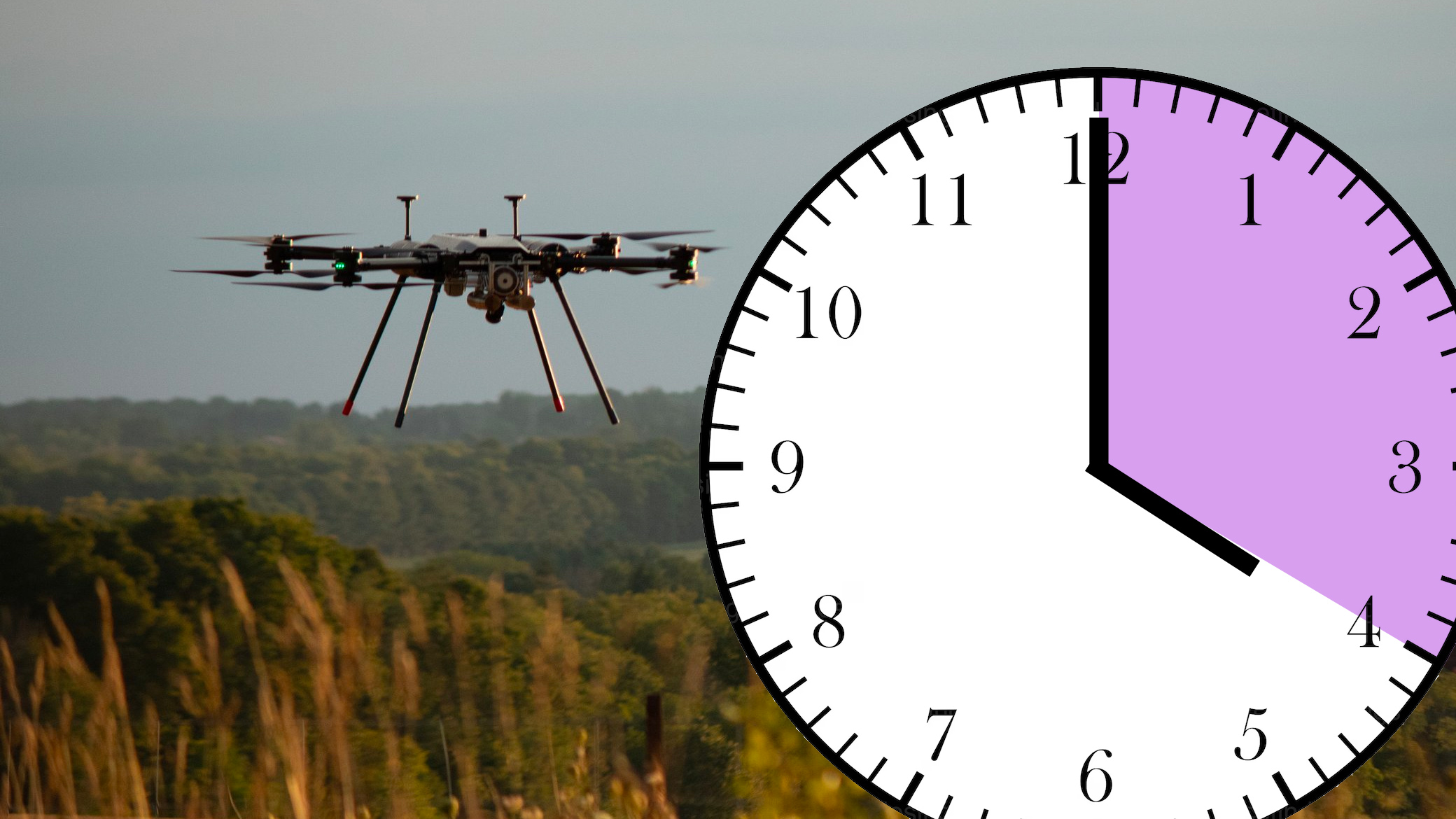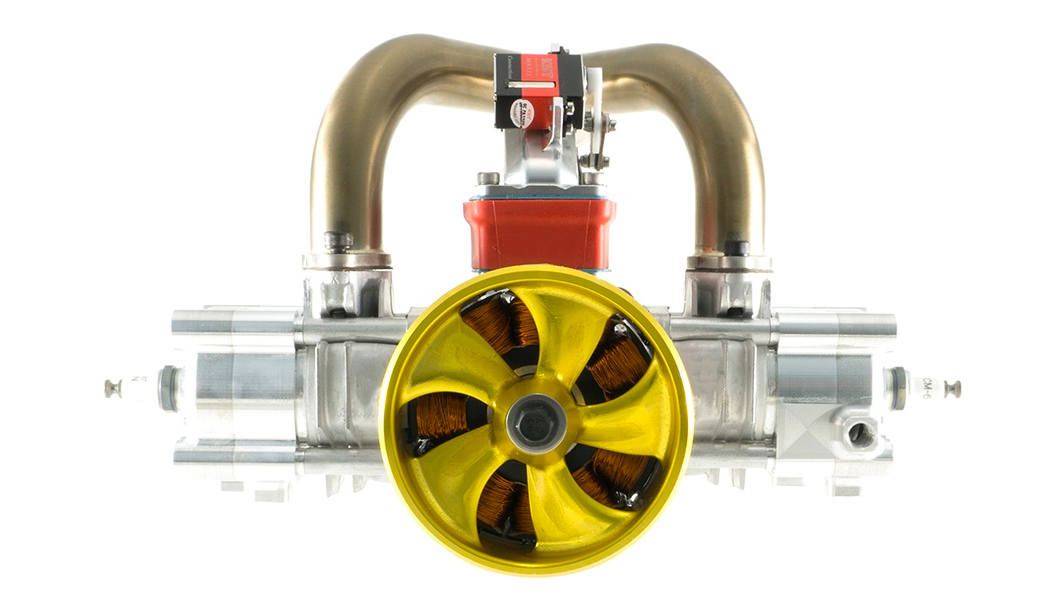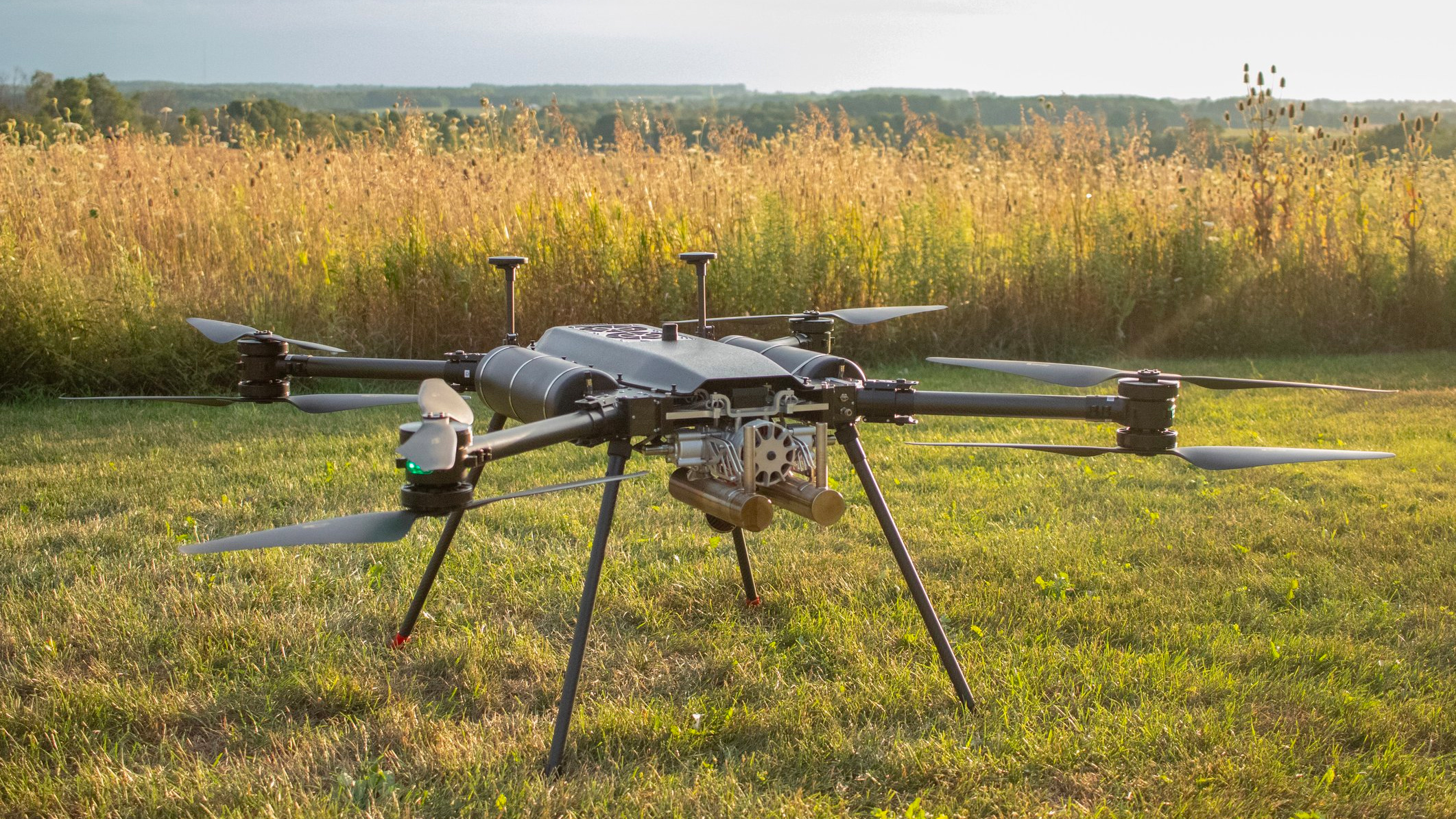
Pegasus Aeronautic's are now selling drones with a revolutionary hybrid power system that unleashes the potential to stay in the air for hours, not minutes. The G15 Sentinel is available today.
Just like the Toyota Prius, or any other full hybrid car, the drone has a gas engine that turns a transformer to provide electricity for the motors too, with some LiPo power available.
As well as the sheer increase in flight time, the drone offers the potential to fly in locations a LiPo battery simply can't. One of the less-noticed specifications which will usually be found on a drone is the maximum and minimum operating temperatures – in short, though, LiPo batteries don't like the cold.
Pegasus's hybrid system, however, was beta-tested in the Canadian winter, in Labrador, inspecting thousands of kilometers of power lines. It can operate in temperatures as low as -20˚C (-4˚F), and has also been used successfully in the USA, Canada, Europe, India, Japan, and Saudia Arabia.

Without a payload, the G15 Sentinel can fly for up to 5 hours, though the more realistic 4 hours should be good enough for most. It is, however, a little bigger and heavier than many drone operators are used to – this is a professional inspection device and comes in at 25Kg (55lb), measuring 1.5m (59-inches) motor-to-motor.
The control system can provide feedback on the flight systems, warning of any issues in time to land safely. Clearly, there will be some regulatory issues in some places, but the drone has already been tested in the Arctic by a Finish client.
Moreover, American customers will be very pleased to learn the drone is made in Canada with no Chinese components, according to Bob Stratton of Pegasus Aeronautics. That should mean government and state bodies dealing with restrictions on buying Chinese aren't limited here.

If you're wondering if this tech might make it to some of the best camera drones, we wouldn't hold our breath. Obviously, a larger commercial drone can carry a camera as its payload, and gas/petrol power has long been a mainstay of the hobby model plane world, so there is no theoretical issue, but in practice, Pegasus is currently focussed on the commercial sector and – we'd guess – consumers are fairly happy with the relative ease of transporting and recharging LiPo.
You can learn more about the tech at the Pegasus Aeronautics site, or (for other commercial uses) check our guide to thermal drones.







